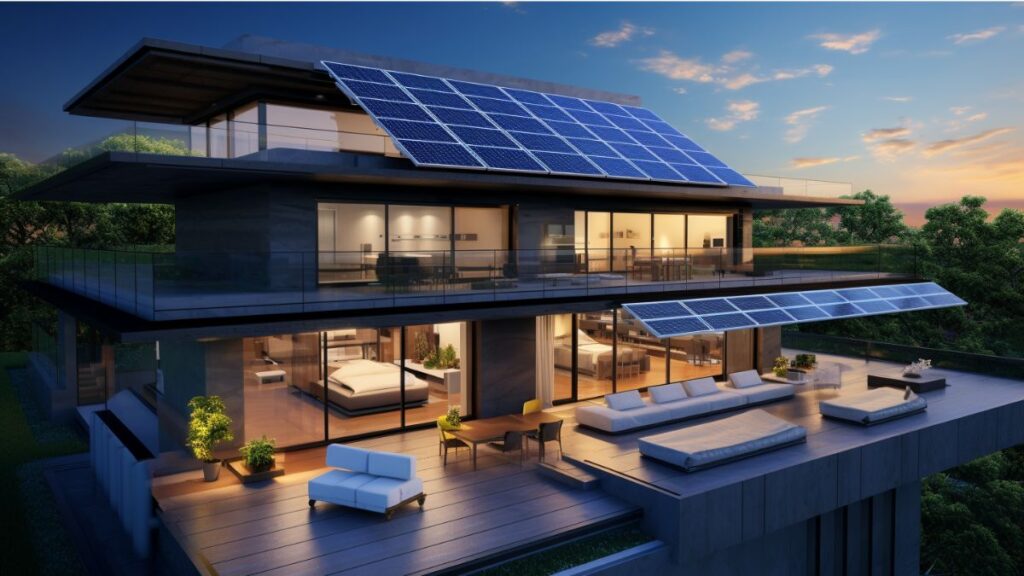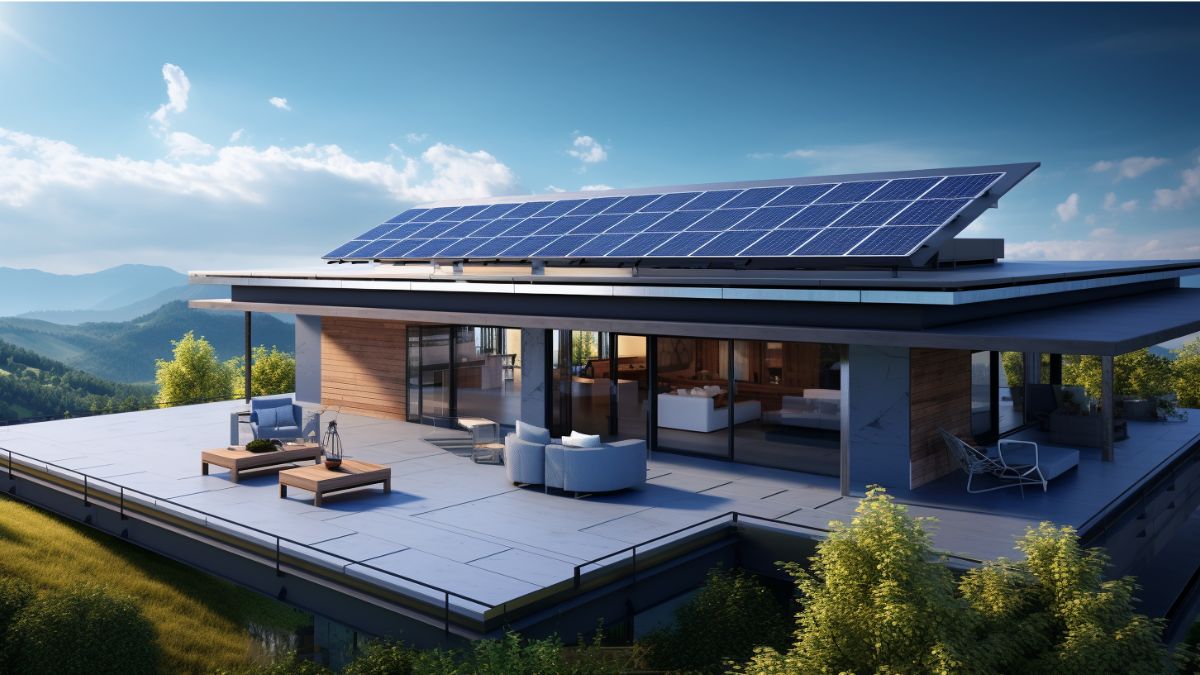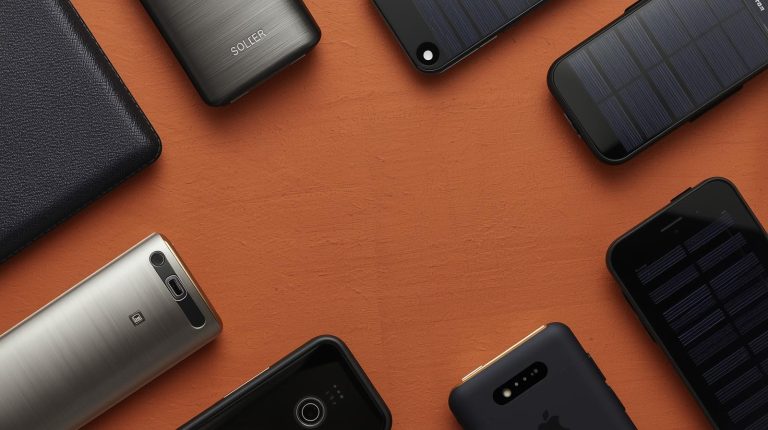Looking to harness the power of the sun, but facing limited space and warm climates? Finding the best solar panels for your needs can be a daunting task. But fear not! In this article, we’ll guide you through the process of selecting solar panels that not only fit in tight spaces and thrive in warm climates but also come with a solid warranty.
So, get ready to embark on a journey towards energy efficiency and join the ranks of solar panel enthusiasts!
Key Takeaways
- SunPower, Canadian Solar, REC, and Panasonic are the best solar panel brands for limited roof space, as they offer high efficiency and power output.
- REC, Panasonic, and Canadian Solar are the best panels for warm climates, as they have the lowest temperature coefficients.
- SunPower offers one of the best labor warranties in the industry, making it a top choice for panels based on warranty.
- Investing in durable panels is important to ensure they can withstand outdoor elements and continue to perform optimally.
Top Solar Panel Brands and Rankings

Panasonic, REC, and SunPower are the top solar panel brands overall. When comparing solar panel efficiency, these brands consistently outperform others in the market. They offer cost-effective panel options that provide high power output and efficiency, making them a wise choice for homeowners.
Additionally, their panels have a high temperature coefficient, which means they can still produce electricity efficiently even in warm climates. Durability and weather resistance are also important factors to consider when choosing solar panels. Luckily, these top brands excel in this area as well, ensuring that your investment will withstand the test of time.
Furthermore, their longevity and warranty considerations are impressive, giving you peace of mind knowing that your solar panels are protected. Overall, Panasonic, REC, and SunPower are the top solar panel brands that offer the best combination of efficiency, cost-effectiveness, temperature coefficient, durability, and warranty.
Factors to Consider When Choosing Solar Panels
When choosing solar panels, it’s important to consider the type of panel, power output, efficiency, temperature coefficient, lifespan, and warranty.
- Monocrystalline and polycrystalline panels are the most common types, with monocrystalline being more efficient but also more expensive.
- Power output refers to the amount of electricity the panel can produce, while efficiency measures how well it converts sunlight into electricity.
- The temperature coefficient is a crucial factor in warmer climates as it determines how well the panel performs in high temperatures.
- Lifespan indicates how long the panel will continue to generate electricity, while the warranty offers protection against any defects or malfunctions.
To determine the cost-effectiveness of solar panels, it’s essential to compare the upfront cost with the expected savings on electricity bills over the panel’s lifespan.
Related Post: Best Solar Panels for Mobile Homes: Your Green Power Solutions.
Best Solar Panels for Limited Space
If you have limited roof space, SunPower, Canadian Solar, REC, and Panasonic offer high efficiency and power output. These top solar panel brands provide installation options that are suitable for small areas.
They have space-saving designs that maximize energy production while minimizing the physical footprint on your roof. These panels are designed to be compatible with various rooftop structures, ensuring a seamless integration into your home.
When considering solar panels for limited space, it’s important to evaluate efficiency versus size. These brands excel in optimizing energy output while maintaining a compact size. By choosing panels from one of these brands, you can make the most of your limited roof space without compromising on performance.
Best Solar Panels for Warm Climates
REC, SunPower, and Canadian Solar are the top choices for homeowners in warm climates due to their low temperature coefficients. These brands offer solar panels that are specifically designed to tolerate high temperatures and perform efficiently in hot weather conditions.
The energy efficiency of these panels ensures that you can generate maximum electricity output, even in the scorching heat. In addition to their temperature tolerance, these panels are also known for their longevity and low maintenance requirements. They are built to withstand harsh weather conditions, such as strong winds and heavy rain, making them resistant to damage and ensuring their durability.
With REC, SunPower, and Canadian Solar, you can have peace of mind knowing that your solar panels will continue to perform reliably in warm climates for many years to come.
Related Post: Solar Tiles Vs Panels: Ultimate Guide To Your Best Option.
Best Solar Panels by Warranty
SunPower offers one of the industry’s most impressive warranties for their solar panels. When it comes to warranty comparison, SunPower stands out with their long term coverage and industry leading guarantees. Their labor warranty options ensure that you have peace of mind knowing that your solar panels are protected.
It is important to carefully review the warranty terms and conditions to fully understand the coverage and any limitations that may apply. To help you make an informed decision, here is a comparison of SunPower’s warranty with some other top solar panel brands:
| Brand | Warranty Length | Labor Warranty Options | Warranty Terms and Conditions |
|---|---|---|---|
| SunPower | 40 years | Yes | Industry leading guarantees |
| Panasonic | 25 years | Yes | Impressive coverage |
| REC | 25 years | Yes | Comprehensive warranty |
| Canadian Solar | 25 years | Yes | Reliable long term coverage |
| Q CELLS | 25 years | Yes | Solid warranty protection |
Solar Panel Durability
Investing in durable panels ensures that they will continue to perform well in various weather conditions. Solar panel durability is crucial for maintaining outdoor performance and panel reliability.
To determine durability, standardized tests such as the Damp Heat test and Thermal Cycling are conducted. The Damp Heat test evaluates the panels’ ability to withstand high temperatures and humidity, simulating harsh weather conditions. Thermal Cycling, on the other hand, assesses the panels’ resistance to temperature fluctuations, which can cause stress on the materials over time.
These tests ensure that the panels can withstand weather variations and continue to generate energy efficiently. Panel reliability and weather resistance are key factors to consider when choosing solar panels, as they play a vital role in the long-term performance and lifespan of the system.
Related Article: Solar Panel Degradation Curve: The Impact on Long-Term Savings.
Determining the Number of Solar Panels Needed
When determining the number of solar panels you need, consider factors such as your energy consumption and the size of your roof. Calculating capacity and rooftop suitability are crucial steps in the process.
An energy consumption analysis will help determine how much electricity you use on a daily basis, allowing you to estimate the number of panels required to meet your needs. Additionally, evaluating the cost effectiveness and installation logistics is essential for a successful solar panel system.
To assist you in this process, here is a table to help you determine the number of solar panels needed based on your energy consumption and roof size:
| Energy Consumption | Roof Size | Number of Solar Panels |
|---|---|---|
| Low | Small | 10-15 |
| Medium | Medium | 15-20 |
| High | Large | 20-25 |
Related Post: How Many Solar Panels To Run An Air Conditioner?
Frequently Asked Questions About Solar Panels
To better understand solar panel systems, you may have a range of questions about topics such as cost, lifespan, and different types available.
When it comes to cost, it’s important to consider the long-term savings and benefits of solar panels. While the initial installation process may have a higher upfront cost, the potential savings on your electricity bill and government incentives can make it a worthwhile investment.
In terms of lifespan, most solar panels have a warranty of 25 to 30 years, but they can last even longer with proper maintenance. Speaking of maintenance, solar panels are relatively low maintenance, requiring occasional cleaning and inspection.
Additionally, installing solar panels can have a positive environmental impact by reducing your carbon footprint and reliance on fossil fuels.
Comparing Solar Panel Quotes
Now that you have a better understanding of solar panels and their various features, you may be wondering how to compare quotes and make an informed decision.
When comparing solar panel quotes, there are several factors to consider. First and foremost, you’ll want to compare prices from different installers to ensure you’re getting the best deal.
Additionally, it’s important to evaluate the installation process offered by each company to ensure it aligns with your needs and preferences. Financing options should also be taken into account, as they can greatly impact the affordability of your solar panel system.
Furthermore, consider the maintenance requirements of each panel brand and the potential energy savings you can expect over the system’s lifespan.
Related Post: Best Solar Panel Battery Bank for Home: The Ultimate Guide.
Additional Information
If you’re unsure about the number of solar panels needed for your home, consider factors such as energy consumption and roof size. The solar panel installation process involves evaluating your energy needs and determining the appropriate number of panels.
To finance your solar panel installation, there are various options available, such as loans, leases, and power purchase agreements.
Maintenance tips for solar panels include regular cleaning, monitoring performance, and checking for any damage or debris.
Efficiency is an important factor to consider when comparing solar panels, as it determines how much electricity the panels can generate.
Additionally, it’s crucial to consider the installation cost, which may vary depending on factors such as the size of the system and any additional equipment needed.
Related Post: Solar Cost Metrics Exposed: The Price per Watt and LCOE.
Conclusion
When it comes to finding the best solar panels for limited space, warm climates, and warranty, you have a plethora of options to choose from. From high-efficiency panels like SunPower and Panasonic to affordable ones like Q CELLS and Canadian Solar, there is something for everyone.
Remember to consider factors like power output, efficiency, temperature coefficient, lifespan, and warranty before making your decision. And if you’re still unsure, don’t hesitate to compare quotes on the EnergySage Marketplace.
So go forth, harness the power of the sun, and let your energy savings shine!




